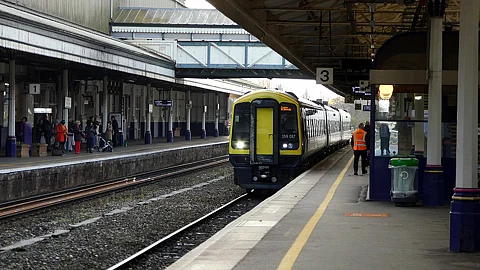

The UK’s South Western Railway (SWR) returned to public ownership on Sunday, marking the first step in the Labour government’s plan to renationalize the country’s rail network. The move fulfills a pledge made by Prime Minister Keir Starmer upon taking office last year.
Transport Secretary Heidi Alexander hailed the shift as a "watershed moment" in efforts to prioritize passenger needs. The transition took effect at 1:59 a.m. local time, though the first service under state control was a rail replacement bus.
Britain’s railways have long faced criticism for frequent delays, high fares, and operational inefficiencies. The Labour government argues that bringing services under public ownership will end decades of fragmentation and improve reliability.
The UK’s rail services were privatized in the mid-1990s, though infrastructure remained publicly managed by Network Rail. Legislation passed in November 2023 allows the government to take over rail operators as their contracts expire—all of which will end by 2027—or sooner if performance is deemed inadequate.
SWR is now operated by the Department for Transport (DfT) and will eventually integrate into Great British Railways (GBR), a new public body overseeing rail infrastructure. GBR’s formal establishment awaits parliamentary approval, expected this autumn.
Four operators—Southeastern, Eastern, C2C, and Greater Anglia—are slated for nationalization by the end of 2025. Seven more will follow by 2027. The government estimates the move will save up to £150 million in compensation fees previously paid to private operators.
Rail unions, which have staged repeated strikes over pay and conditions, welcomed the change. Mick Whelan, general secretary of Aslef, stated, "Everyone in the rail industry knows privatization didn’t, and doesn’t, work."
However, the RMT union raised concerns about ongoing outsourcing to private firms, urging full integration of contracted workers. Meanwhile, the opposition Conservative Party warned that Labour must deliver on promises of improved service and affordability.
Alexander acknowledged that fares may not immediately decrease but pledged reinvestment into infrastructure and service quality. "Passengers deserve great value for money," she told the BBC.
The government’s long-term goal is to renationalize nearly all passenger rail services in England, Wales, and Scotland by 2030—a plan criticized by Conservatives as costly and ineffective.
As SWR adopts the new GBR branding, featuring a royal blue livery with the Union Flag, the shift signals a pivotal moment in UK rail policy—one that passengers will judge by its results.